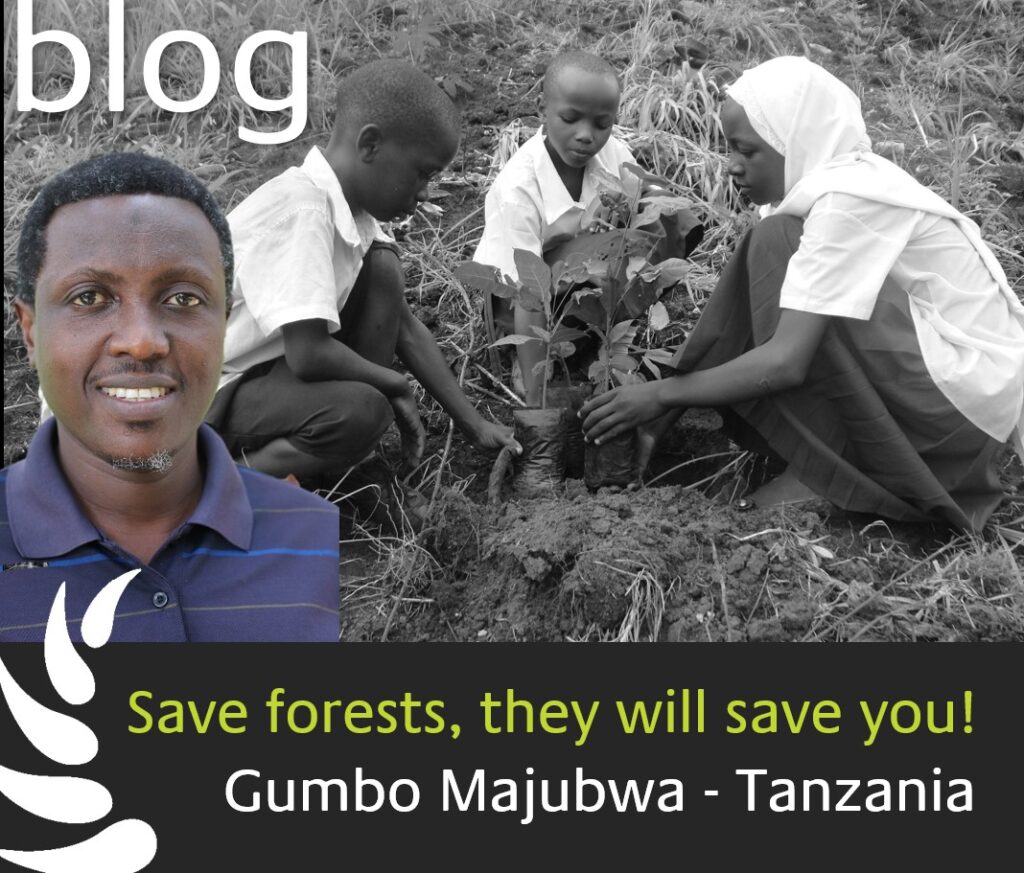Summary
Gumbo hails from Tanzania. In 2018 he founded the NGO ambakofi. The organization works to create an eco-friendly farming and fishing community surrounded by regenerative agroforest and mangroves forests respectively.
Additionally, also livelihood training and restoring valuable forest land are being worked on. Gumbo is back at kanthari for a special BASCH course. Read all about it!
by Gumbo Majubwa – Tanzania
When I was 24 years old, the forest of my happy childhood in Bagamoyo, on the east coast of Tanzania started to be degraded. Every time, I see trees being cut down, anger haunts me so much, I could cry.
This was what motivated me to start the organization ambakofi, an NGO that has the goal to introduce regenerative agroforestry practices, improve biodiversity and restore deforested land. All this is happening in the Chalinze district in the coastal region of Tanzania.
As a lead person of ambakofi, currently I am here at kanthari Institute for Social Change, Kerala India to attend the two-month training course in Business and Social Change (BASCH). The training program will equip me with tools on how to run a successful social business. In this course, ambakofi will introduce a smoothie product with the brand name ‘’SMOOZIKA’’ as a non-wood forestry product. The product’s aim is to rescue the forests from being cut for the excuse of shifting cultivation. The product made from natural, fresh, and real fruits and nuts will create value in restoring and conserving the forest by generating a sustainable income for our beneficiaries. And also, the product will provide nutritional value and availability to potential consumers.
In 2017 I was one of the kanthari participants here in Kerala India. It was in the kanthari Institute for social change campus whereby the ambakofi organization was founded. From 2018 -2022 ambakofi has reached 197 small-scale farmers and fishing communities. With those target groups, ambakofi executes forest restoration projects. The projects include Regenerative Agroforestry farm (RAF) and Community Based Ecological Mangrove Restoration in Chalinze and Pangani Districts respectively.
However, the farmers and fishermen that I work with are facing several problems and challenges. The main problem is drought which poses a great threat to their livelihood. The drought has resulted in less crops and fish. Because of that, these marginalized groups moved to forests (terrestrial and marine forests) to get alternative sources of income generation. But then, their situation deteriorated when they started to cut trees and mangroves. This increased an ecological disorder and led to further poverty.
To work on non-timber products that could secure a livelihood, the farmers and fishermen would need adequate equipment. For example, only sunlight is not sufficient for producing quality dried agroforestry products. For this, a dehydration machine is required.
We also worked on an initiative to realize sustainable livelihood activities like beekeeping in the mangrove forests, production of mangroves-related non-timber products, as well as seaweed farming.
However, we faced challenges mainly caused by pests and insects.
I studied environmental planning and management. Now I wish to find solutions for the above-mentioned problems and establish an eco-friendly community surrounded by an agroforest which will be a source of livelihood and a start to revive our forest!



